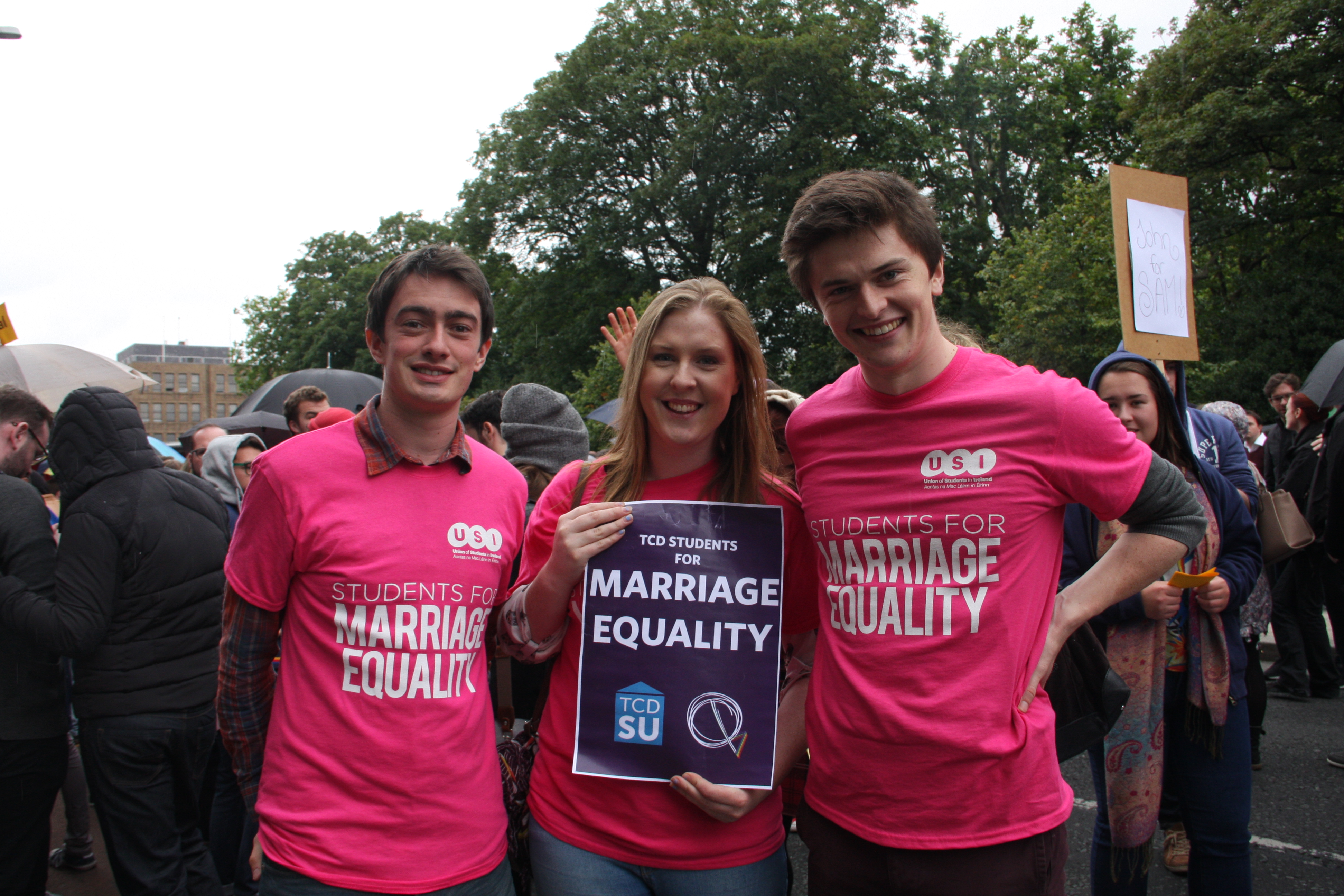
Currently, according to the union’s constitution, the LGBT rights officer must identify as being LGBT (either lesbian, gay, bisexual or trans*). One of the possibilities of broadening the criteria of the role of LGBT rights officer could be that students who do not identify as queer could be elected to the position. The possibility of having a cisgender heterosexual rights officer (a straight student whose chosen gender matches the sex they were assigned at birth) who represents the queer community has been one reason for opposition to the proposed change. However, the main issue is the means by which the issue has been brought into the public forum, whereby there has been minimum input sought from LGBT student, according to Stephen Hatton, last year’s LGBT rights officer.
Speaking to Trinity News, Hatton said he sees the proposed discussion item as a push for a motion that would effectively remove the requirement for the LGBTRO to identify as queer and therefore “remove one of the very few privileges the queer community rely on”. The position “exists for the LGBTQI community of College and only this community can decide the scope and requirements of the role,” he said. “By bringing the discussion item to Council, Domhnall and Ian are actively ignoring the strong protestations of prominent queer representatives in College and offering this discussion up to a heterosexual majority. Any real consultation of the queer community has been lacking, which the sabbats are well aware of.”
For Hatton, that the decision would be taken by Council, a body with a large cisgender heterosexual majority, is a bone of contention. “Union Council ensures that the queer voice is a distinct minority, in a decision which affects LGBTQI students solely,” he said. “Some queer voices may well be heard during the discussion item, but the forum that is Council guarantees that a marginalised community will remain marginalised and underrepresented in the discussion and or motion which affects them alone; whereby the straight cisgender:queer student ratio at Council couldn’t be more than 70:30, if even.”
He added: “I feel robbed and alienated by my own union; a union which boasts of its progressive student body, its inclusive ideals and its proud history of LGBTQI activism and advocacy. Something like this shouldn’t even be an issue but it is now, thanks to ignorance and the marginalizing of a minority voice in a discussion of the representation of the LGBTQI minority.”
When asked by Trinity News if he thought it appropriate that an issue that exclusively affects the rights of queer students be debated on and decided by an institution (Council) that has a huge straight majority, SU president McGlacken-Byrne responded: “Yes.”
Mooney responded to criticism by saying that the discussion item is not about “removing the need to identify as LGBT”, but rather about “discussing the stipulations about running for the LGBTRO position.” Mooney stated that currently the criteria for rights officer are open only to those who identify as LBGT, meaning that cisgender heterosexual students are not the only members of the student body who are excluded from running:
“If people would like to focus on discussing whether or not to remove the need to identify as LGBT, that’s up to them,” he said.” If people would like to focus on broadening the field of things you can identify [as], such as adding in that you may identify as queer, intersex, or asexual for example (as currently anyone who identifies as these also can’t be nominated), that’s up to them. I’m suggesting nothing, just facilitating discussion.”
Mooney went on to state that he believed Council was an appropriate forum for this discussion.“Council is a place where things can be debated and discussed,” he said. “I absolutely do think it is appropriate that things be discussed openly and everyone is given the opportunity to give their opinion.”
Hatton has also criticised the discussion item on the grounds of it being a push for a subsequent motion on the issue. “There is a major fault in the proposed process of using this discussion item to initiate a motion to change the constitution at this Special Council,” he said. “This mechanism is only intended to remove and correct oversights or errors in a new TCDSU constitution. It is not a way to change the spirit or meaning of anything in the constitution when it was accepted in its original form presented in the previous referendum.”
He added: “If this discussion item were to lead to any motion regarding the requirements of the LGBTRO officership it would undeniably change the spirit and meaning of the position of LGBTRO and a change like this cannot therefore be ratified by this special council. I think this is not known by many people, including the sabbats who propose to abuse this mechanism and make significant changes to the constitution. The electoral commission will be responsible for recognising the unconstitutionality of any proposed motion which changes the spirit of meaning behind the constitution as it was when adopted by referendum in April 2014.”
When it was put to McGlacken-Byrne if the decision to raise the subject as a discussion item was an attempt to initiate a motion, he responded: “No, it’s an attempt to get feedback from more than the limited few people hereto involved in the conversation about a multifaceted issue that affects both straight and LGBT students.”






